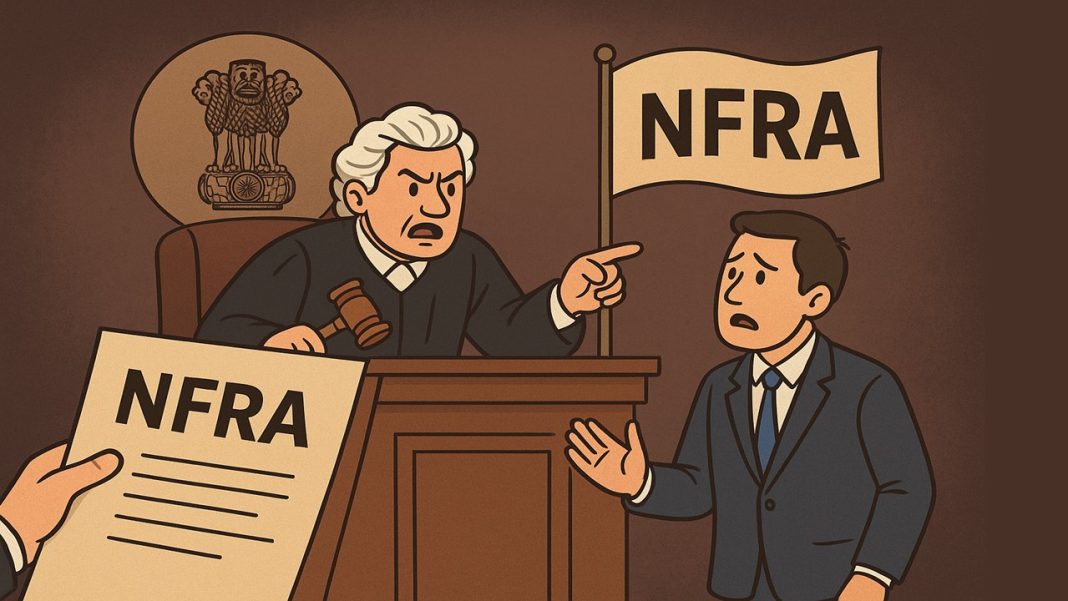Delhi HC Flags NFRA for Breach of Rules, Calls for Clear Separation of Powers
The Delhi High Court said that the National Financial Reporting Authority (NFRA) did not follow the rules properly. According to the law, one team at NFRA should review the audit, and a different team should decide whether to start disciplinary action. But in this case, the same people at NFRA checked the audit, formed an opinion, and decided on the punishment process. The High Court said the procedure lacked impartiality and proper evaluation, and NFRA acted against what the law requires.
However, in its defense, NFRA stated that “Its executive body has been entitled in law to discharge all functions and duties as placed upon the NFRA as a whole.”
After the HC ruling, the court highlighted that the NFRA will have to initiate the division of authority. Further, a senior lawyer added, “If it has to fulfill its legal obligations.”
A partner of Bhuta Shah and Co LLP said, “The Companies Act 2013 and NFRA rules mandate distinct roles within NFRA, a legal provision requiring separation of function not maintained by NFRA. The decision to proceed against any firm for disciplinary action must be made independently by NFRA members who are unconnected with the review process, as a dual role cannot be assumed and proper separation of authority within its structure shall be done.”
An NFRA official said that the Delhi High Court’s judgment does not match what the NCLAT had already said in December 2023. According to NCLAT, NFRA was already following the proper structure, with the “divisions” required by law. Later, people challenged the NCLAT decision in the Supreme Court, but the Supreme Court dismissed those appeals.
But legal experts argued that NCLAT is a quasi-judicial forum and not a constitutional court, and therefore it doesn’t look into constitutional matters.
A senior lawyer said, “NCLAT rulings are based on the statutory framework of company and insolvency laws, without addressing broader constitutional questions. Therefore, when the Supreme Court upholds an NCLAT ruling, it does so within that statutory context, not as a verdict on the constitutionality of the matter. In contrast, the recent High Court order, issued in response to writ petitions, specifically pertains to constitutional validity”.



